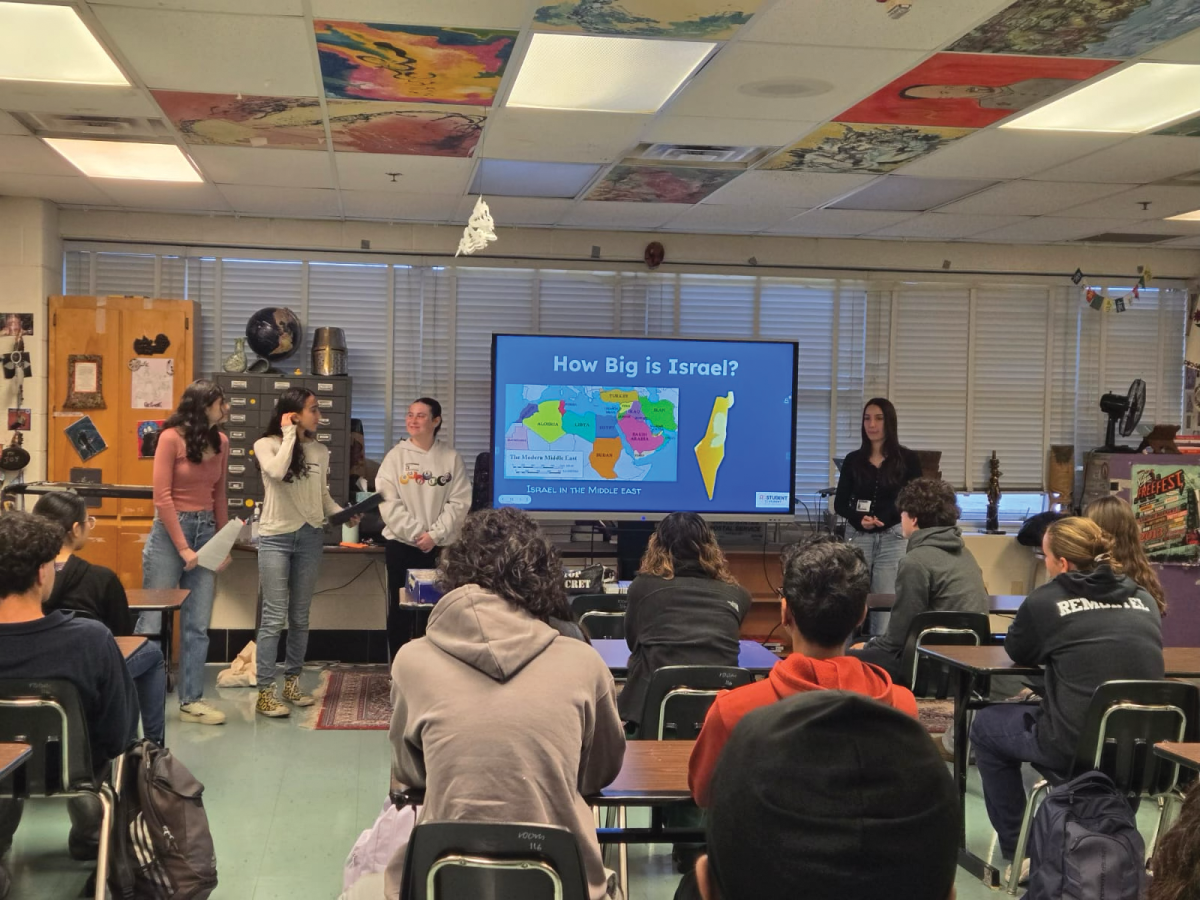Students at Elizabeth Seton High School, a private all-girls school, had heard about Judaism and Israel, and maybe attended a B’nai Mitzvah or two. But to some of them, many Jewish terms were unfamiliar. Yet, after senior Rafi Siegel and three other Jewish teens spoke to their class about their experience as Jews, especially in a post-Oct. 7 world, Siegel said he was able to connect with his audience well.
This presentation was a part of the Jewish Community Relations Council (JCRC) Student to Student program, which invites students to speak about their Jewish experiences at high schools around the DMV.
“[The students] were surprised that we came in and said, ‘We have a very, very strong connection to Israel, and this is why we have a strong connection to Israel, and it doesn’t mean we support everything that happens [actions of the Israeli government],’” Siegel said. “I think that made a difference for them.”
Siegel is a group leader, and is working alongside 121 other Jewish teens in the area. The program aims to combat antisemitism by facilitating conversations and establishing personal connections between teens, according to Mandy Book, Assistant Director of Education Programs and Services at the JCRC of Greater Washington.
Working in groups of four, representatives speak to classes at public and private schools using materials assembled by the Be the Narrative organization, which launched in 2022 to elevate the Student to Student program nationally. Topics range from Jewish life cycle events to common practices. Junior Ella Arking said that participating in the program has helped prepare her for interactions she might have beyond high school.
“I don’t really have a lot of interaction with non-Jews,” Arking said. “I found that [it was]difficult to explain Judaism … So throughout the presentation, I actually had to learn how to use other words to describe words [Jewish terms] that are in my daily life, because the students don’t understand.”
While Arking is a modern Orthodox Jew, she is grouped with students from a range of backgrounds who have different ways of practicing.
“No two Jews are the same, and no two observances are exactly the same. Every family, synagogue and community does things a little bit differently,” Book said. “And even within those groups, each individual does it a little differently according to their belief on their practice, so we end up with a really diverse group of presenters.”
Along with religion and culture, representatives also cover antisemitism, the Holocaust and Israel. Since the program is non-political, teens refrain from giving any political stances. Instead, they focus mainly on the faith-based connection between Israel and Judaism, as well as pieces about their own connection with the land.
“Our students are so gratified when they are able to feel heard and understood, when they’re able to share something that’s really meaningful to them and find a willing and listening ear in someone who is interested in caring about their life and wants to know more,” Book said. “It’s such a positive experience in both directions.”
Siegel said that the opportunity to share his personal experiences as a Jewish teen with a connection to Israel was the most important to him.
“These kids could have all these things on the slideshow told to them by a teacher in their class, but instead, they get to hear it from Jewish teens, from kids their age,” Siegel said. “… So I do think that the face-to-face interaction of seeing students who are just like them, who are the same age as them, who are their peers, telling them about what it means to be Jewish, has a very strong impact.”








